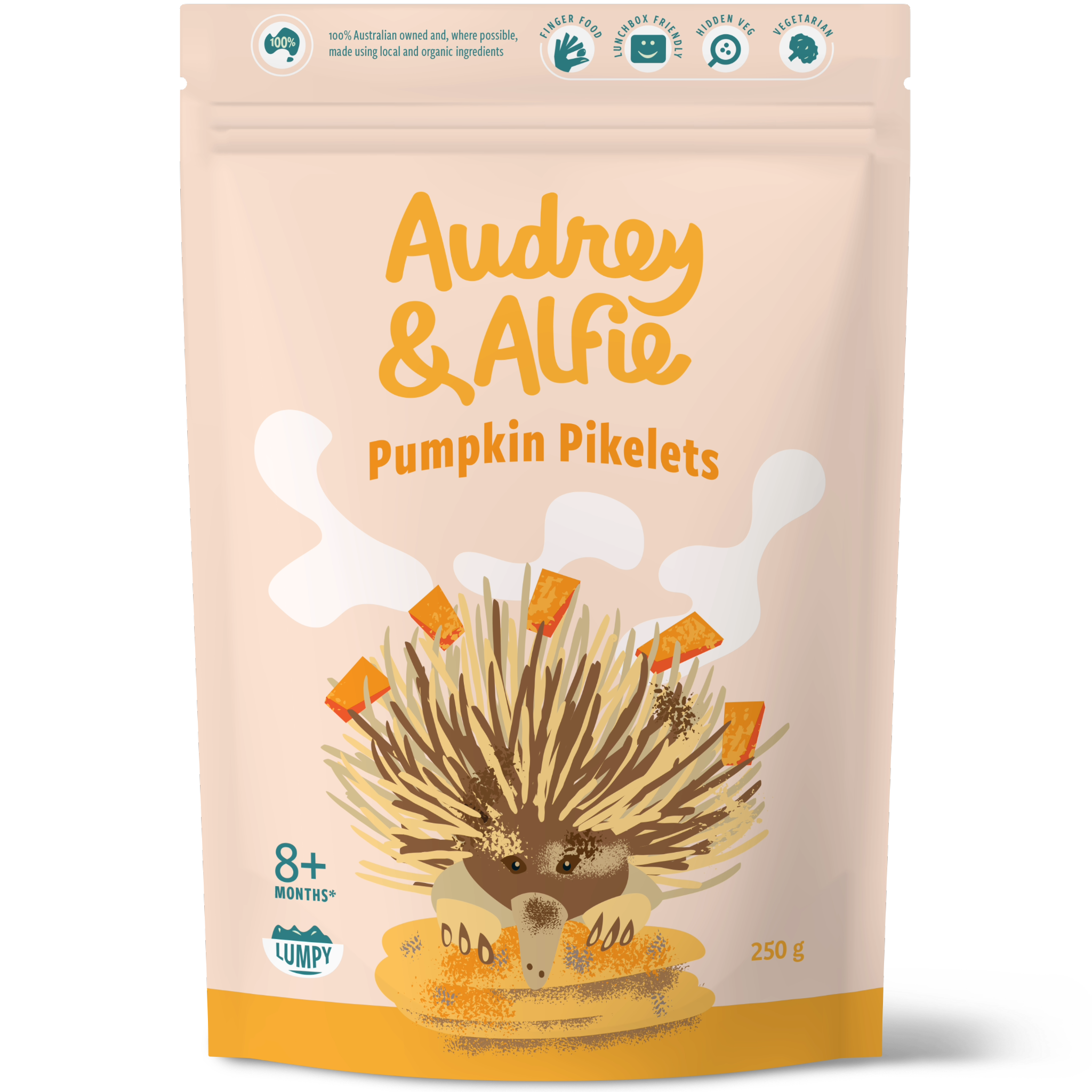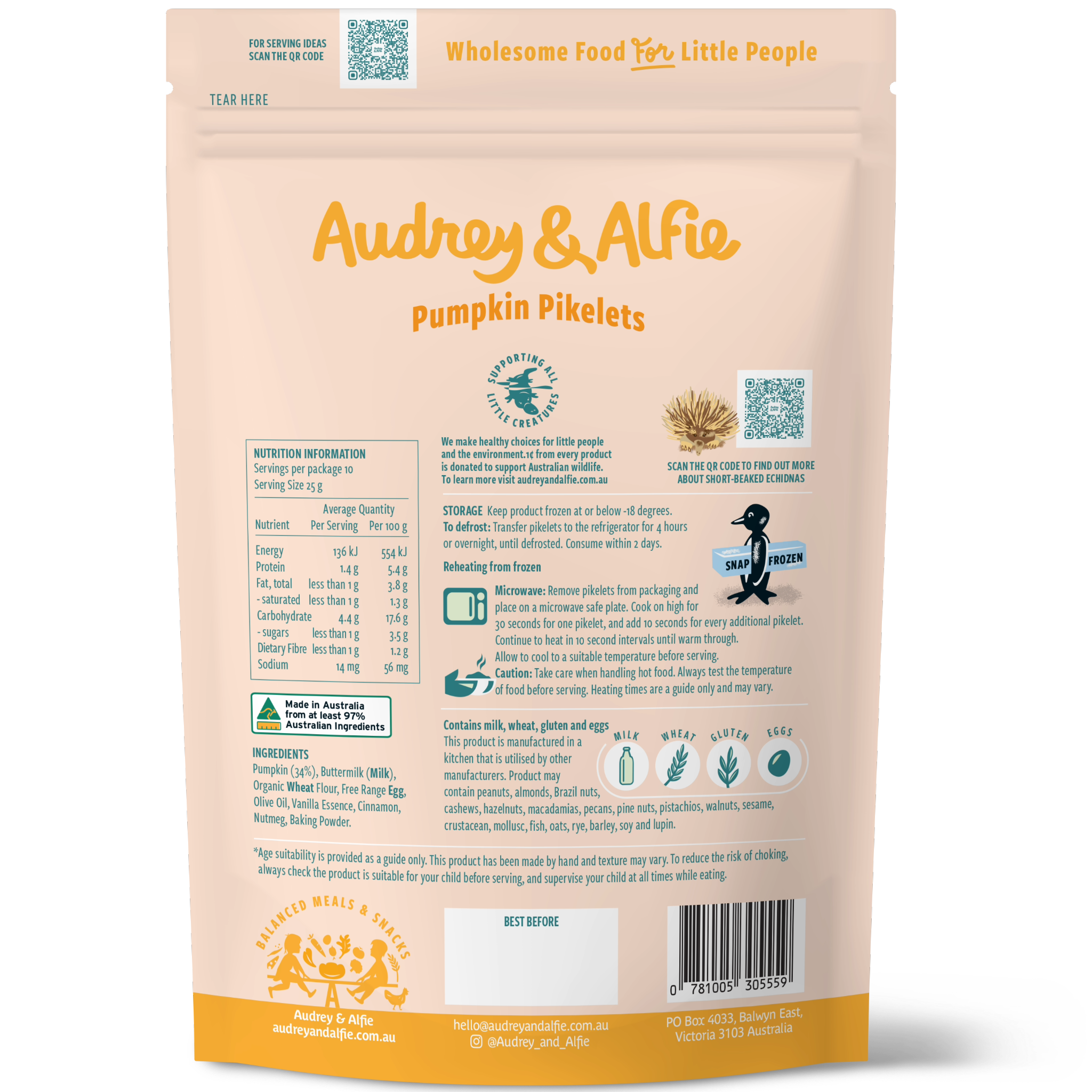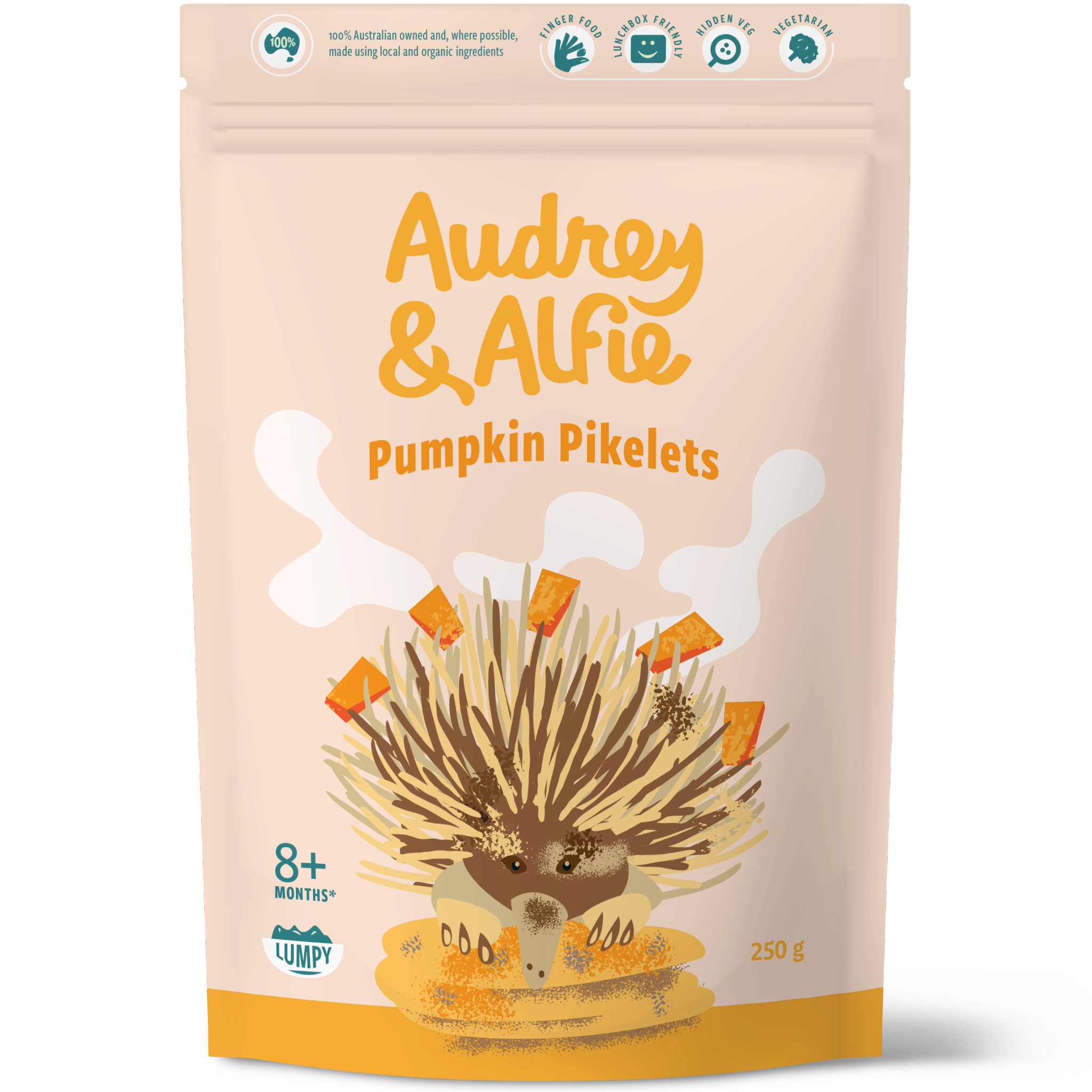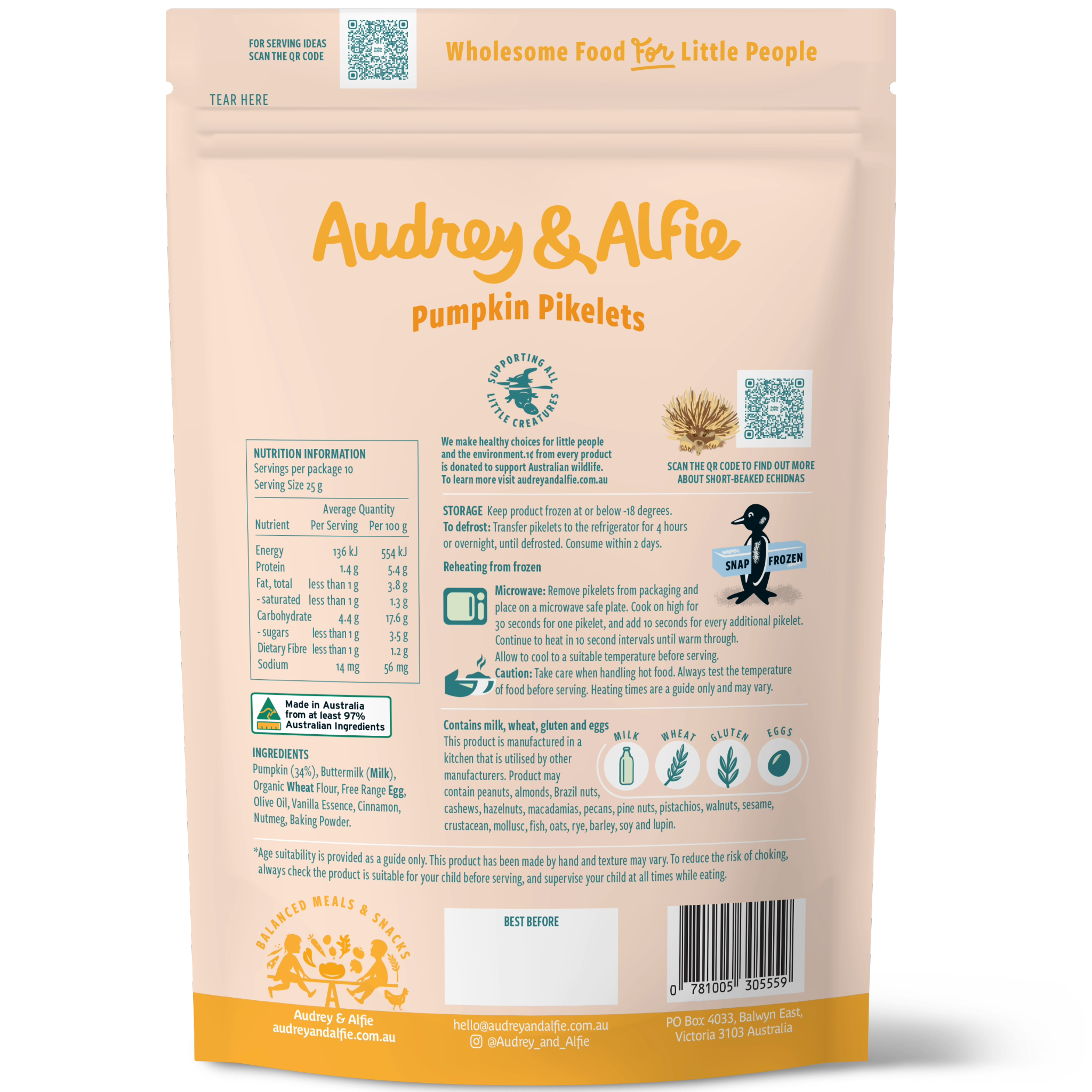Product information
Ingredients
Pumpkin (34%), Buttermilk (Milk), Organic Wheat Flour, Free Range Egg, Olive Oil, Vanilla Essence, Cinnamon, Nutmeg, Baking Powder.
Allergens
Contains milk, wheat, gluten and eggs
This product is manufactured in a kitchen that is utilised by other manufacturers.
Product may contain peanuts, almonds, Brazil nuts, cashews, hazelnuts, macadamias, pecans, pine nuts, pistachios, walnuts, sesame, crustacean, mollusc, fish, oats, rye, barley, soy and lupin.
Age & Texture Suitability
Suitable for children aged 8+ months.
Note: Age suitability is provided as a guide only. This product has been made by hand and texture may vary.
To reduce the risk of choking, always check the product is suitable for your child before serving, and supervise your child at all times while eating.
Texture can be modified (mashed / pureed) to suit different capabilities.
Heating & Serving Suggestions
For baby-led weaning, this is perfect on its own or paired with fresh fruit and Greek yoghurt.
For children over 12 months, we recommend pan-frying for 3-4 mins each side (with your choice of oil or butter), and topping with a drizzle of honey & Greek yoghurt. Or alternatively, pan fry and top with a slice of cheese and some chopped cucumber and tomato for an easy, veggie-packed lunch!







